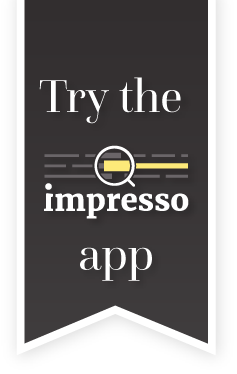Consortium
section.nolang = /consortium/
Team
An interdisciplinary team of designers, digital humanists, computational linguists and historians has joined forces to develop a co-designed tool to monitor the media of the past.
collaborators
Thijs van Beek
Estelle Bunout, PhD
Daniele Guido, M.Sc.
Matteo Romanello, PhD
Gerold Schneider
Paul Schroeder
Phillip Ströbel, M.A.
contributors
|
contact-point
Simon Clematide, PhDPost-doctoral researcher, UZH-CL |
|---|
Post-doctoral researcher, UZH-CL
Simon holds a PhD in Computational Linguistics from the University of Zurich. His main interests involve crowdsourcing for linguistic data, text mining, machine learning and finite-state methods.
Within impresso, Simon is mainly responsible for NLP and text mining, as well as system design and data management.
|
contact-point
Marten Düring, PhDResearcher, C2DH |
|---|
Researcher, C2DH
Marten Düring holds a PhD in Contemporary History from the University of Mainz and is part of the C2DH’s Digital History Unit. Marten’s research focuses on contemporary history, digital history and more specifically network analysis in the historical disciplines. Alongside impresso , Marten is part of the ANR/FNR-funded project BLIZAAR (Hybrid Visualization of Dynamic Multilayer Graphs).
Within impresso, Marten is responsible for coordinating interface development, digital history methodology and investigations as well as project dissemination.
|
contact-point
Maud Ehrmann, PhDResearch scientist, EPFL-DHLAB |
|---|
Research scientist, EPFL-DHLAB
Maud holds a PhD in Computational Linguistics from the University of Paris 7 Denis Diderot and is a research scientist at the EPFL Digital Humanities Laboratory in Lausanne. Her research interests span natural language processing and digital humanities and include historical text annotation, historical data processing and representation, named entity recognition and multilingual linguistic resource creation.
Within impresso, Maud is responsible for project management, system design and data management, annotation and benchmarking and named entity processing.
|
collaborator
Thijs van BeekDeveloper, C2DH |
|---|
Developer, C2DH
Thijs is a web designer and developer, specialising in user centered design, iterative prototyping, user interface and interaction. He has experience in and outside academia, working for a broad range of clients, from e-commerce, to enterprise and historical institutions.
Within the first impresso project, Thijs was working together with the other members across the board to develop and integrate different aspects of the interface and implement interactive visualisations of the historical material.
|
collaborator
Estelle Bunout, PhDAssociate Researcher, C2DH |
|---|
Associate Researcher, C2DH
Estelle Bunout holds a PhD in contemporary history from the University of Lorraine (France). In her thesis, she studied the expertise of Eastern Europe in Germany and Poland (1918-1972), its emergence after 1918, its formalization as a science of the enemy and its revision after 1945 accompagnying the Ostpolitik of Willy Brandt, until 1972. To analyse the posture of the expert on Eastern Europe, she focused on 30 experts from Germany and Poland, across the regime and border changes these countries experienced and studied the change of their practices from 1918 to 1972. For this transnational prosopography, she developed a dedicated visualisation of border changes and biographical information. She holds a M.A. in History of European Integration from the University of Strasbourg.
Within impresso, she researches resistance to the European idea, primarily in the digitised newspaper collections from Switzerland and Luxembourg. She is responsible for digital history methodology and investigations.
|
collaborator
Daniele Guido, M.Sc.Lead designer, C2DH |
|---|
Lead designer, C2DH
Daniele is a designer and full-stack developer specialising in data visualisation, network visualisation and digital methods. He designs and develops experimental web applications and tools to improve information retrieval in the digital humanities.
Within impresso, Daniele is responsible for interface design and implementation of the impresso search interface.
|
collaborator
Matteo Romanello, PhDResearch scientist, EPFL-DHLAB |
|---|
Research scientist, EPFL-DHLAB
Matteo holds a PhD in Digital Humanities from King’s College London and is a research scientist at the EPFL Digital Humanities Laboratory in Lausanne.
Matteo is a DH specialist with particular experience and expertise in the areas of (digital) classics and archaeology. His main research interests include natural language processing and information extraction, especially their domain-specific applications; citation mining and analysis; digital publishing; and applications of semantic web technologies in the humanities.
Within impresso, Matteo is co-responsible, with Maud, for project management, system design and data management, annotation and benchmarking, and named entity recognition and disambiguation. He will join the team in January 2018.
|
collaborator
Gerold SchneiderComputing scientist , UZH-CL |
|---|
Computing scientist , UZH-CL
Gerold Schneider is a computational linguist, corpus linguist and English linguist.
Within impresso, Gerold is invaluable in his role as computing specialist, supporting in Digital Humanities and a precious advisor for case studies.
|
collaborator
Paul SchroederDesigner & developer, C2DH |
|---|
Designer & developer, C2DH
Paul is a graphic designer and web developer with experience in both print and screen design. Paul enjoys solving problems with design thinking, whether it is for client work or for his own projects. In his free time, he is designing objects, prints and experimental web applications.
Within impresso, Paul is working together with Daniele and Roman on the search interface and front end design.
|
collaborator
Phillip Ströbel, M.A.PhD student, UZH-CL |
|---|
PhD student, UZH-CL
Phillip is a PhD student at the University of Zurich’s Institute of Computational Linguistics.
Within impresso, Phillip contributes to the development and implementation of text mining techniques. More precisely, his research work will focus on modelling cross-lingual topic relations across time.
|
supervisor
Andreas Fickers, Prof.Director of the C2DH |
|---|
Director of the C2DH
Andreas Fickers is the Director of the Luxembourg Centre for Contemporary and Digital History (C²DH) and Head of the DH Lab. He studied history, philosophy and sociology and is currently Professor for Contemporary and Digital History and Chair of the Association of Professors at the University of Luxembourg. He completed his PhD in 2002 at RTWH Aachen University and subsequently worked as an Assistant Professor for television history at Utrecht University (2003-2007) and Associate Professor for comparative media history at Maastricht University (2007-2013).
|
supervisor
Frédéric Kaplan, Prof.Head of EPFL-DHLAB |
|---|
Head of EPFL-DHLAB
Prof. Frederic Kaplan holds the Digital Humanities Chair at the Ecole Polytechnique Fédérale de Lausanne (EPFL) and directs the EPFL Digital Humanities Lab. He conducts research projects combining archive digitisation, information modelling and museographic design.
Within impresso, Frédéric steers overall project activities and supervises the contributions of the DHLAB.
|
supervisor
Martin Volk, Prof.Professor, UZH-CL |
|---|
Professor, UZH-CL
Prof. Martin Volk is the Director of the University of Zurich’s Institute of Computational Linguistics. He supervises the contributions made by the research group at the Institute of Computational Linguistics.
|
supervisor
Lars Wieneke, PhDHead of digital research infrastructure, C2DH |
|---|
Head of digital research infrastructure, C2DH
Lars Wieneke holds a PhD in Engineering from the Bauhaus-Universität Weimar, Germany, and is Head of the Digital Research Infrastructure at the C2DH in Luxembourg.
He is also co-head of the Europeana User-Generated Content Thematic Task Force and co-head of the Working Group on Visualisation and Interactivity in DARIAH.
Within impresso, Lars is supervising interface design and development as well as visualisation.
section.nolang = /consortium/people/
Partners
The impresso project draws on the expertise and talent of three leading institutions in digital humanities, computational linguistics and digital history from Luxembourg and Switzerland.
Digital Humanities Laboratory, EPFL. |
 |
|---|
dhlab.epfl.ch — Founded in 2012, the Digital Humanities Laboratory (DHLAB) at the Swiss Federal Institute of Technology in Lausanne develops computational approaches applied to humanities. Research at the DHLAB is highly interdisciplinary and explores a variety of fields including linguistics, literature, history, art history and architecture, with the support of methods from computer science, computer vision, NLP, geographic information processing, photogrammetry and web development. The DHLAB develops methods and software for the transcription and annotation of historical documents, the extraction of information from historical texts and the reconstruction and visualisation of geographical spaces in 2 and 3D.
Role: The DHLAB is responsible for overall management (WP1), system design and data management (WP2), named entity processing (WP3.4) and annotation and benchmarking (WP4), and will contribute to other work packages in close collaboration with all partners.
Participants: Frédéric Kaplan (PI), Maud Ehrmann, Matteo Romanello (from 01/2018 on).
Institute of Computational Linguistics, UZH. |
 |
|---|
www.cl.uzh.ch — For the last 20 years, the Institute of Computational Linguistics has been the leading language technology department in the German-speaking part of Switzerland. In addition to engineering-oriented research in machine translation, biomedical/political text mining and sentiment analysis, the institute has extensive expertise in language technology for building, annotating and exploiting heritage corpora.
Role: ICL is responsible for natural language processing and text mining (WP3) and will also contribute to other work packages.
Participants: Martin Volk (co-PI), Simon Clematide, Phillip Ströbel.
Luxembourg Center for Contemporary and Digital History, Luxembourg University. |
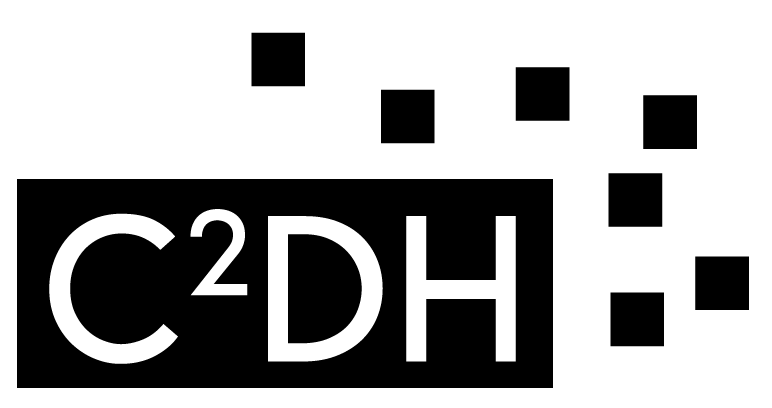 |
|---|
c2dh.uni.lu — Founded in 2016, the Luxembourg Centre for Contemporary and Digital History is dedicated to the study of digital history, contemporary Luxembourgish history and modern European history. It promotes an interdisciplinary approach to the field of contemporary history with a particular focus on new digital methods and tools for historical research and teaching. The centre strives to act as an international hub for reflection on the methodological and epistemological challenges of doing history in the digital age. It particularly focuses on the use and development of digital methods and tools for innovative historical research, and serves as a catalyst for creative scholarship and hands-on approaches to new forms of public dissemination and societal engagement with history in Luxembourg. Members of the centre have diverse backgrounds in historical disciplines, social sciences, information science, design and application development. The centre’s staff have extensive experience in user-centred design, co-design and the development of interfaces and visualisations with humanities scholars and social scientists.
Role: The C2DH is responsible for visualisation (WP5), digital history methodology and investigations (WP6) and dissemination and exploitation (WP7).
Participants: Andreas Fickers (co-PI), Marten Düring, Estelle Bunout, Daniele Guido, Lars Wieneke.
section.nolang = /consortium/partners/
Associated partners
impresso receives high-quality content from national libraries, archives and newspapers across Europe. A team of associated historians ensures that impresso meets the needs and quality standards of its target audience.
Swiss National Library, SNL |
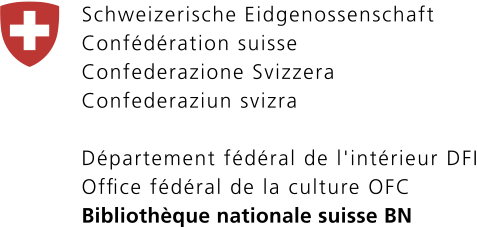 |
|---|
www.nb.admin.ch — As a memory institution of the Swiss Confederation, the Swiss National Library (SNL) is ready to address new digital realities and willing to promote innovative digital scholarship practices. Since 2006, the SNL has been digitising its collections and making them available online, with a strong emphasis on serials and the press, for which there is significant user demand. In collaboration with cantonal libraries and publishers, the Swiss National Library set up a platform for online newspapers in 2011, recently improved and refactored: e-newspaperarchives.ch. It also actively supported the DHLAB’s project based on Le Temps digital archives, which resulted in a new interface for the journal’s historical archives,www.letempsarchives.ch
Role: The SNL will provide the consortium with access to digitised newspapers and periodicals, offer information and comments on the current status and requirements of its platform and provide feedback on the prototypes developed by the consortium. It will also take part in workshops where infrastructure providers (libraries, archives), digital scholars (historians) and text miners will share and exchange experience, and it will benefit from the enrichment of newspaper content and the availability of open-source prototypes.
Participants: Marie-Christine Doffey (Director), Liliane Regamey (Head of User Services)
National Library of Luxembourg, BnL. |
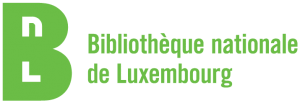 |
|---|
www.bnl.public.lu — The National Library of Luxembourg has been addressing the digital challenge for more than a decade, both as a heritage library and as the coordinator and service provider of the bibnet.lu network of Luxembourg libraries, including the library of the University of Luxembourg. The BnL started digitising its heritage collections in 2002 and since then has been continuously adapting its specifications and methods to reflect changing user requirements and available technologies. Conservation issues and growing demand from researchers and the general public meant that priority was given to the digitisation of the Luxembourg press. To date, 510,000 pages with text recognition and 200,000 pages in image mode are available on the BnL’s website www.eluxemburgensia.lu.
Role: The BnL will support the project by providing the enriched full-text data of its digitised newspaper and periodical collection, which spans the mid-19th to the 20th century. The BnL will share information on the development of its current portal and its aims and plans for data enrichment, while also giving feedback on the new prototypes developed by the project. It hopes to identify opportunities for the improvement of its existing portal, which is scheduled to undergo a technological and functional overhaul. The BnL will also provide input about the process of applying improvements developed by the project to its digital collections. The institution is willing to participate in workshops and conferences dealing with questions raised by the project.
Participants: Monique Kieffer (Director), Carlo Blum (Head of IT).
State Archives of Valais, AEV. |
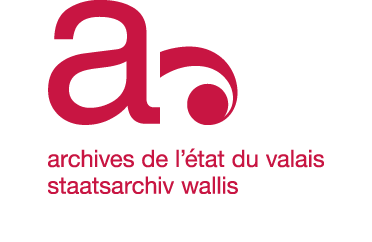 |
|---|
www.vs.ch/web/culture/aev — The State Archives of Valais have an administrative, historical and cultural mission. AEV is responsible for collecting, classifying, inventorying, preserving and valorising the archival documents belonging to the state and produced by the cantonal administration, as well as other documents concerning the history of Valais and Valais society.
Role: AEV will provide the consortium with access to digitised newspapers and periodicals from Valais, express wishes regarding historical newspaper interfaces and give feedback on the new prototypes developed by the consortium. AEV will participate in project workshops and benefit from enriched newspaper content as well as the availability of open-source prototypes.
Participants: Alain Dubois (Cantonal Archivist), Simon Roth (Scientific Librarian, Médiathèque du Valais).
Swiss Economic Archives, SWA. |
 |
|---|
// www.ub.unibas.ch — The SWA (Schweizerisches Wirtschaftsarchiv), founded in 1910, maintains business archives and document collections on specific topics, companies, associations and individuals. The focus of the SWA collections includes Swiss economic policy and economic development and the history of Swiss economics and companies. In addition to newspaper clippings, collections include studies, reports, PR material and other publications from companies, associations, official offices and research institutes. A major project currently under way at the SWA revolves around the digitisation of newspaper extracts and some archive documents.
Role: SWA will provide optimised access to digitised cultural heritage, newspapers and periodicals in particular. SWA will help to identify opportunities for the improvement of existing portals and to identify and serve user needs, and give feedback on prototypes developed by the consortium. SWA will participate in project workshops and benefit from enriched newspaper content as well as the availability of open-source prototypes.
Participants: Irene Amstutz (Head of the University of Economics at the Swiss Economic Archives).
Le Temps |
 |
|---|
www.letemps.ch — Le Temps, the leading newspaper in French-speaking Switzerland, was launched in March 1998. Its predecessors, the Journal de Genève and La Gazette de Lausanne, played an important role in the history of the region in the last 200 years, with the first archive dating back to 1 February 1789. Ten years ago, the management team at Le Temps therefore decided to digitise and make accessible its entire historical archives. The process involved the Swiss National Library, several sponsors and many years of work. In 2016, the www.letempsarchives.ch website was completely redesigned with one objective in mind: making the archives as accessible as possible to the general public.
Role: Le Temps will provide access to its digitised archives and actively support the design of the historical newspaper exploration interface by giving suggestions and feedback on prototypes developed by the consortium.
Participants: Gaël Hurlimann (Editor-in-Chief of Digital Content).
Neue Zürcher Zeitung, NZZ. |
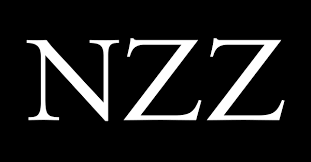 |
|---|
www.nzz.ch — Since 1780 the NZZ has provided its readers with mainly political and economic information. With the emergence of the internet the NZZ started to develop digital information channels, and it will soon be switching to a digital-only product offering to reflect changing user behaviour. Part of this strategy involves transforming the entire paper archive to a digital archive (via scanning/OCR methods).
Role: NZZ supports impresso by giving full access to all existing digital newspaper assets from 1780 to 1950 (strictly restricted to internal project distribution). NZZ will also provide the consortium with feedback on the status quo and needs of its current portals, and on new prototypes developed by the consortium. The newspaper will be given access to improved text after the application of automatic OCR post-correction and enriched newspaper content following the use of text mining tools. NZZ will also participate actively in workshops where infrastructure providers (libraries, archives), digital scholars (historians) and text miners exchange views.
Participants: Ruth Haener (Head of the Archive and Services Department), André Maerz (Project Manager for Convergence).
History department, University of Lausanne, UNIL. |
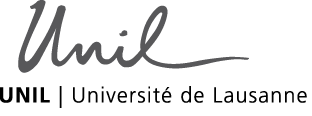 |
|---|
// www.unil.ch/hist — For more than a decade, the University of Lausanne’s History Department has developed extensive expertise in media history and has been actively engaged in research and teaching activities in digital humanities. As well as exploring the history of the media, the department encourages the increasingly systematic and methodologically rigorous integration of digital audiovisual and media sources into contemporary Swiss history.
Role: Historians from UNIL will use the tools and interfaces developed in the course of the project for teaching activities in the field of media history, the history of Swiss foreign policy and international cultural relations, as well as the political and cultural history of European integration (WP6.5). They will also contribute to discussions on the epistemological and methodological implications of the use of text analysis tools, interfaces and visualisations, and will organise and contribute to workshops on these topics (WP6.4).
Participants: François Vallotton (Full Professor and Vice-Dean of the Faculty of Arts), Raphaëlle Ruppen Coutaz (Lecturer).
infoclio |
 |
|---|
www.infoclio.ch — infoclio.ch is the professional portal for the historical sciences in Switzerland. It was created on the initiative of the Swiss History Society (SSH) and the Swiss Academy of Humanities and Social Sciences (SAHS). Its objectives are to develop a digital infrastructure for the historical sciences in Switzerland, to increase the visibility of Swiss historical research on the Web and to facilitate access to digital tools and methods for researchers in the humanities.
Role: infoclio will work in close collaboration with the consortium on tasks related to the interplay between computer scientists and historians and the design and reception of digital interfaces for the exploration of historical data. More precisely, infoclio will participate in workshops where infrastructure providers (libraries, archives), digital scholars (historians) and text miners discuss and exchange views. It will be responsible for preparing and running the second and fifth workshops on prototypes and epistemological issues and the sixth workshop on the final evaluation of developed systems (see project timeline).
Participants: Enrico Natale (Managing Director).
section.nolang = /consortium/associated-partners/
Contributors
A network of accomplished of digital humanities specialists and digitisation experts advises and supports the impresso project.
section.nolang = /consortium/contributors/
Friends
A network of accomplished of digital humanities specialists and digitisation experts advises and supports the impresso project.
section.nolang = /consortium/friends/



